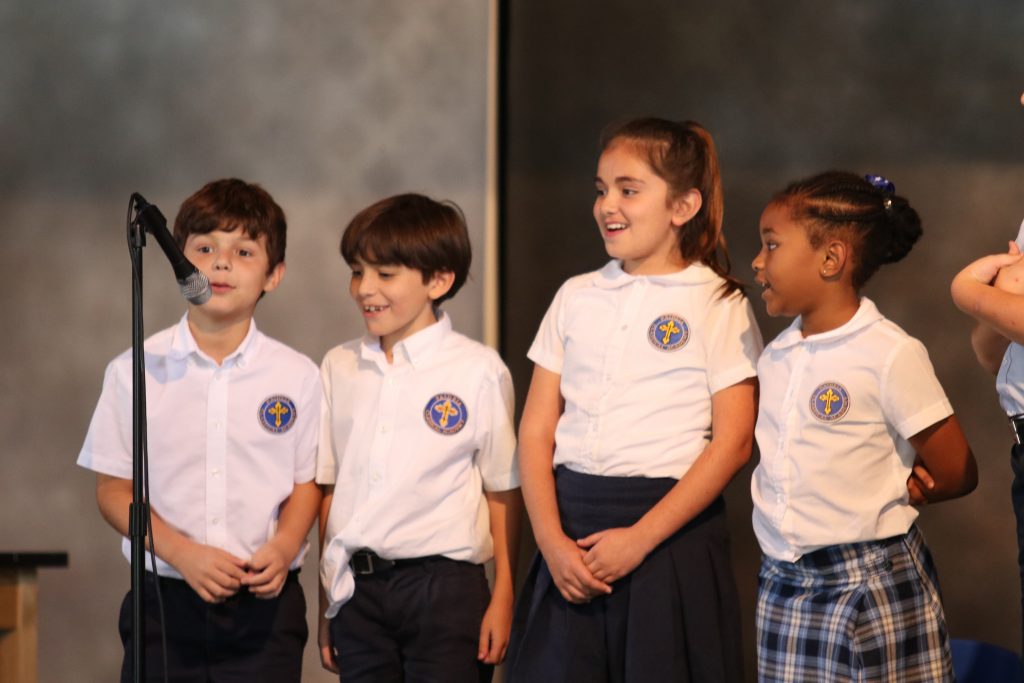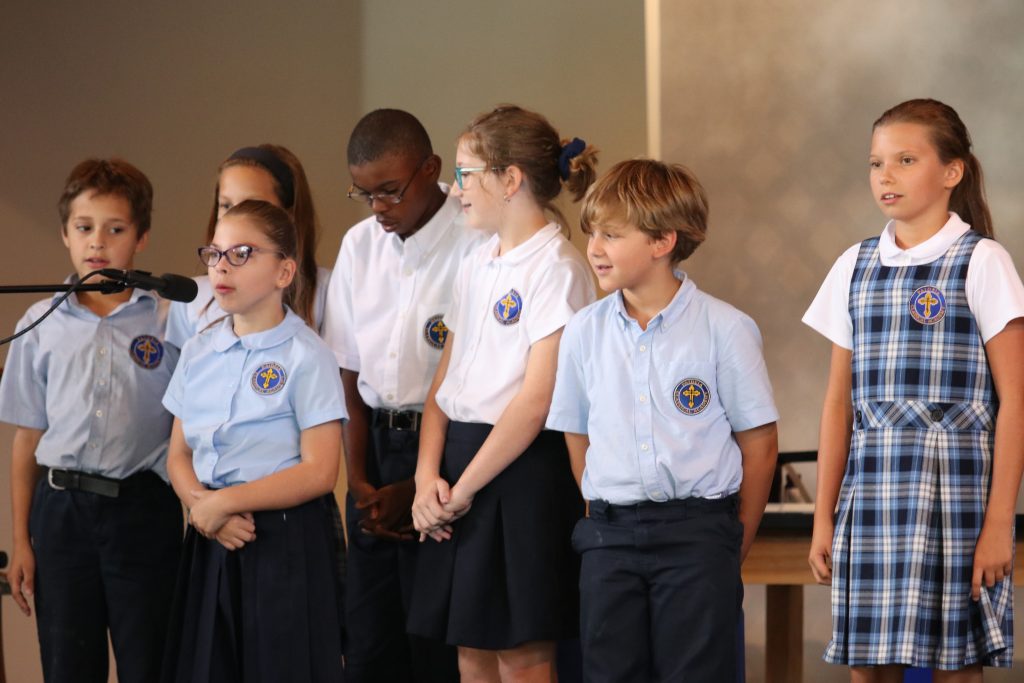Christ-Centered, Classical, Organic, and Green
Grammar Stage (roughly eight through ten years old) Motto: “Our wisdom is in our stories and wonders, our statues, our computation mastery, and our designs and patterns.”
The first stage of the liberal arts is the Grammar Stage. After having mastered letters, numbers, and phonics, children are ready to start working on the foundation of their trivium education, manipulating the building blocks of languages, mathematics, history and geography, sciences, arts, and physical education.
Grammar Stage Content: legends and myths; adventure, coming of age, and fantasy classical novels; poetry; church hymns and prayers; age-oriented classical art; traditional games; lives of the saints, especially children saints; natural sciences (with focus on life sciences and astronomy); world history and geography, theory of music and visual arts, and vocabulary.
Grammar Stage Goal: Within the larger goal of acquiring life-long self-teaching and independent thinking abilities, this stage focuses on the designing and building the following pillars:
1. Mastery of foundational information in all subjects. In other words, Grammar Stage focuses on a well-organized storage process, rather than attempting to predict a production acme. That is not to say that grammar stage milestones are not measurable, or a worthy achievement in themselves, because there is invigorating joy in being able to fully know where things go, and what their names are.
2. Organizing and reorganizing concepts, notes, principles, and truths. As Benjamin Franklin describes in his autobiography, Grammar Stage students learn by mimicking, extracting, correcting, comparing, reorganizing, and restating: “This was to teach me method in the arrangement of thoughts.”
3. Planting the seeds of recognition of Goodness, Truth, and Beauty. If in previous years children prepare the ground in which such seeds are to be planted by exposure to the Truth, the Good, and the Beauty, it’s in the Grammar years that they receive much needed knowledge and skills for the recognition thereof.
Grammar Stage Virtues: honesty, responsibility, faith, knowledge, humility, patience, faithfulness, and kindness.
As they enter this stage, students’ innate strengths are to be employed at their highest potential, and memorization is the cornerstone of a Grammar Student’s artistry. By committing to memory facts, principles, methods, events, and timelines, children establish, model, and improve the infrastructure of all their future knowledge and skills. Their minds are thus prepared to tackle more complex information, once the blocks are well set, and the pillars are well drafted.
Grammar students slowly establish, only to later on surpass, their own rhythm of work in both mathematics (working with fractions, decimal numbers, ratios, order of operations, negative and positive numbers, measurements, lines, flat shapes, and geometric solids; mastering computation skills, principles, and mechanics; practicing estimation; and solving word problems and incipient equations) and English grammar (working with all elements of language mechanics, morphology, sentence parts, sentence and paragraph structure and mechanics, and advancing in the study of reference sources, reports, and argumentative writing), as well as spelling and vocabulary (using a phonics-based instructional design, integrated with the overall breath of logic stage subjects; with lessons focusing on analyzing spelling patterns, and utilizing proofreading, riddles, puzzles, and word games as practice towards perfection). The study of language arts is completed with two hours and a half of classical world literature every week, aiming to build vocabulary in context, as well as listening and comprehension skills, proper worldview, and the ability to narrate and summarize. In addition, students receive one weekly hour of training in classical writing (following the progymnasmata method and curriculum), and one in classical poetry (where they focus on accumulating knowledge about different prosody concepts, as well as acquiring the skill of recitation).
The study of Latin language, introduced at this age, is of paramount importance in building knowledge and skills that will form the foundation of not only future study of any Romance language, but of English grammar and vocabulary, as well as sciences and history. By attending to the logical structure of Latin grammar, students will develop thinking and organizational skills which they will later on employ in understanding algebra. World history and geography continues in four-year cycles, while the sciences will alternate on a three-year pattern, going through astronomy, biology, and botany. The students continue their study of Spanish, along with classical Greek, and delve into classical music, Byzantine chanting, art. Their faith education is rounded up at this stage with weekly Sunday readings and sermons, lives of the saints, and the tenets of the Christian Orthodox Faith.
Grammar Stage, more than any other pre-stages and stages of the trivium, is thus a time when wonder opens the door to knowledge, which will build into wisdom in the logic stage, which, in turn, will usher in the contemplation of mystery in the Rhetoric Stage.


